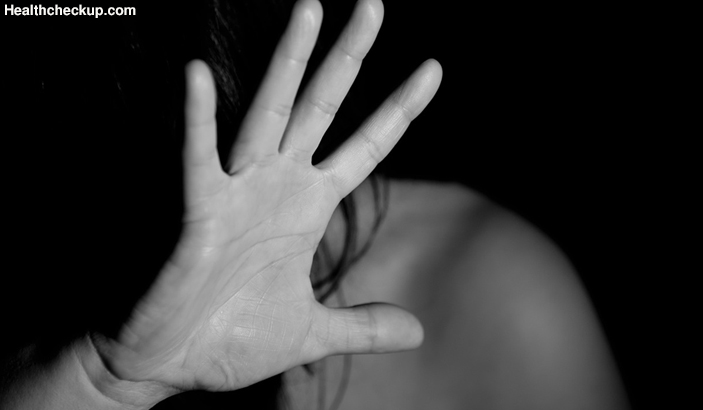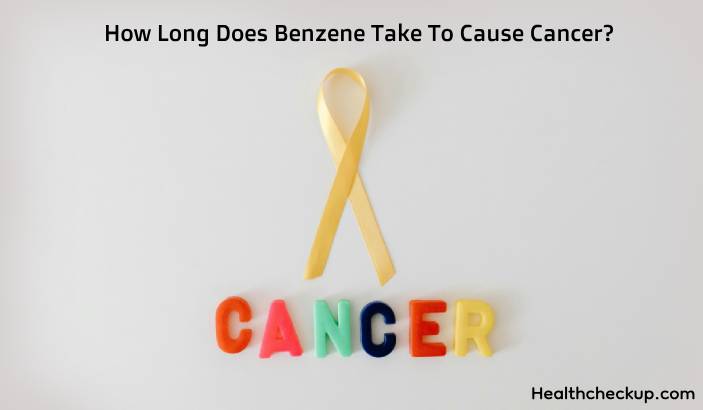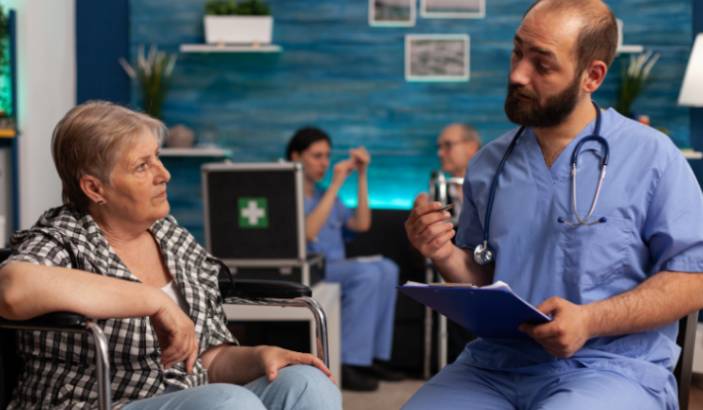There may be question in everyone’s mind on how is obsessive compulsive disorder (OCD) diagnosed or how will we know that someone is suffering from OCD? Anyone who is suffering from OCD, obsessive thoughts and compulsive behaviors affects daily activities and social life but one should not forget that there is always a help. No matter what you do, you can’t seem to shake them. But one should not forget that there is always a help. With treatment and self-help strategies, one can break free of the unwanted thoughts and irrational urges and take back control of your life.
What is Obsessive Compulsive Disorder (OCD)?
Obsessive compulsive disorder (OCD) is an anxiety disorder characterized by uncontrollable, unwanted thoughts and repetitive, ritualized behaviors you feel compelled to perform. If you have OCD, you probably recognize that your obsessive thoughts and compulsive behaviors are irrational—but even so, you feel unable to resist them and break free.
Like a needle getting stuck on an old record, OCD causes the brain to get stuck on a particular thought or urge. For example, you may check the stove 20 times to make sure it’s really turned off, or wash your hands until they’re scrubbed raw.
Understanding OCD Obsessions and Compulsions
Obsessions are involuntary thoughts, images, or impulses that occur over and over again in your mind. You don’t want to have these ideas, but you can’t stop them. Unfortunately, these obsessive thoughts are often disturbing and distracting.
Compulsions are behaviors or rituals that you feel driven to act out again and again. Usually, compulsions are performed in an attempt to make obsessions go away.
For example, if you’re afraid of contamination, you might develop elaborate cleaning rituals. However, the relief never lasts. In fact, the obsessive thoughts usually come back stronger. And the compulsive rituals and behaviors often end up causing anxiety themselves as they become more demanding and time-consuming. This is the vicious cycle of obsessive compulsive disorder (OCD).
Most People with OCD Fall into one of the Following Categories:
Washers are afraid of contamination. They usually have cleaning or hand-washing compulsions.
Checkers repeatedly check things (oven turned off, door locked, etc.) that they associate with harm or danger.
Doubters and sinners are afraid that if everything isn’t perfect or done just right something terrible will happen, or they will be punished.
Counters and arrangers are obsessed with order and symmetry. They may have superstitions about certain numbers, colors, or arrangements.
Hoarders fear that something bad will happen if they throw anything away. They compulsively hoard things that they don’t need or use.
Signs and Symptoms of (OCD)
Just because you have obsessive thoughts or perform compulsive behaviors does NOT mean that you have obsessive-compulsive disorder. With OCD, these thoughts and behaviors cause tremendous distress, take up a lot of time, and interfere with your daily life and relationships.
Most people with obsessive compulsive disorder (OCD) have both obsessions and compulsions, but some people experience just one or the other.
Obsessive thoughts
Common Obsessive Thoughts in OCD Include:
- Fear of being contaminated by germs or dirt or contaminating others
- Fear of losing control and harming yourself or others
- Intrusive sexually explicit or violent thoughts and images
- Excessive focus on religious or moral ideas
- Fear of losing or not having things you might need
- Order and symmetry: the idea that everything must line up “just right”
- Superstitions; excessive attention to something considered lucky or unlucky
Compulsive Behaviors
Common Compulsive Behaviors in OCD Include:
- Excessive double-checking of things, such as locks, appliances, and switches
- Repeatedly checking in on loved ones to make sure they’re safe
- Counting, tapping, repeating certain words, or doing other senseless things to reduce anxiety
- Spending a lot of time washing or cleaning
- Ordering or arranging things “just so”
- Praying excessively or engaging in rituals triggered by religious fear
How OCD is Diagnosed and what are the Tests Done?
A diagnosis of obsessive compulsive disorder (OCD) is based on your symptoms, medical history, and a physical exam. Your doctor may also want a mental health assessment, which is an evaluation of your emotional functioning and your ability to think, reason, and remember (cognitive functioning). A mental health assessment may include an examination of your nervous system, written or verbal tests, and laboratory tests (such as blood and urine tests) as well as a review of your appearance, mood, behavior, thinking, reasoning, memory, and ability to express yourself.
If your doctor suspects that you have OCD, he or she will look for a full range of symptoms that will confirm the diagnosis, including:
- Recurrent and persistent thoughts, impulses, or images that are intrusive and inappropriate, cause anxiety or distress, and are not simply excessive worries about real-life issues.
- Attempts to suppress or ignore the thoughts or get rid of them with other thoughts or actions.
- A recognition that the obsessions are created in your own mind and don’t make sense.
- Repetitive behaviors, such as hand-washing, ordering, praying, or checking that you’re driven to do in response to the obsession. The behaviors are aimed at preventing or reducing distress or preventing a dreaded event.
For a diagnosis of OCD, the obsessions or compulsions must be time-consuming or greatly interfere with your normal routine at work or school and affect social activities and relationships.
Self-Help for OCD:
Learn How to Resist OCD Rituals
If you have OCD, there are many ways you can help yourself. One of the most powerful strategies is to eliminate the compulsive behaviors and rituals that keep your obsessions going.
Don’t Avoid your fears (flooding)
It might seem smart to avoid the situations that trigger your obsessive thoughts, but the more you avoid them, the scarier they feel. Instead, expose yourself to your OCD triggers, then try to resist or delay the urge to complete your relief-seeking compulsive ritual. If resistance gets to be too hard, try to reduce the amount of time you spend on your ritual. Each time you expose yourself to your trigger, your anxiety should lessen and you’ll start to realize that you have more control (and less to fear) than you think.
Refocus your Attention
When you’re experiencing OCD thoughts and urges, try shifting your attention to something else.
You could exercise, jog, walk, listen to music, read, surf the web, play a video game, make a phone call, or knit. The important thing is to do something you enjoy for at least 15 minutes, in order to delay your response to the obsessive thought or compulsion.
At the end of the delaying period, reassess the urge. In many cases, the urge will no longer be quite as intense. Try delaying for a longer period. The longer you can delay the urge, the more it will likely change.
Anticipate OCD urges
By anticipating your compulsive urges before they arise, you can help to ease them. For example, if your compulsive behavior involves checking that doors are locked, windows closed, or appliances turned off, try to lock the door or turn off the appliance with extra attention the first time.
Create a solid mental picture and then make a mental note. Tell yourself, “The window is now closed,” or “I can see that the oven is turned off.”
When the urge to check arises later, you will find it easier to re-label it as “just an obsessive thought.”
Challenge Obsessive Thoughts
Obsessive-compulsive disorder causes the brain to get stuck on a particular anxiety-provoking thought. The following strategies can help you get unstuck:
- Write down your obsessive thoughts or worries
- Keep a pad and pencil on you, or type on a laptop, smartphone, or tablet. When you begin to obsess, write down all your thoughts or compulsions.
- Keep writing as the OCD urges continue, aiming to record exactly what you’re thinking, even if you’re repeating the same phrases or the same urges over and over.
- Writing it all down will help you see just how repetitive your obsessions are.
- Writing down the same phrase or urge hundreds of times will help it lose its power. Writing thoughts down is much harder work than simply thinking them, so your obsessive thoughts are likely to disappear sooner.
Relaxation Techniques for Obsessive Compulsive Disorder (OCD)
While stress doesn’t cause OCD, it can trigger symptoms or make them worse. Mindful meditation, yoga, deep breathing, and other relaxation techniques can help lower your overall stress and tension levels and help you manage your urges. For best results, practice a relaxation technique regularly.
Exercise Regularly
Exercise is a natural and effective anti-anxiety treatment that helps to control OCD symptoms by refocusing your mind when obsessive thoughts and compulsions arise. For maximum benefit, try to get 30 minutes or more of aerobic activity on most days. Ten minutes several times a day can be as effective as one longer period especially if you pay mindful attention to the movement process.
Get Enough Sleep
Not only can anxiety and worry cause insomnia, but a lack of sleep can also exacerbate anxious thoughts and feelings. When you’re well rested, it’s much easier to keep your emotional balance, a key factor in coping with anxiety disorders such as OCD.
Avoid Alcohol and Nicotine
Alcohol temporarily reduces anxiety and worry, but it actually causes anxiety symptoms as it wears off. Similarly, while it may seem that cigarettes are calming, nicotine is actually a powerful stimulant. Smoking leads to higher, not lower, levels of anxiety and OCD symptoms.
Stay Connected to Family and Friends
Obsessions and compulsions can consume your life to the point of social isolation. In turn, social isolation will aggravate your OCD symptoms. It’s important to invest in relating to family and friends. Talking face-to-face about your worries and urges can make them feel less real and less threatening.
Cognitive Therapy for OCD
The cognitive therapy component for obsessive-compulsive disorder focuses on the catastrophic thoughts and exaggerated sense of responsibility you feel. A big part of cognitive therapy for OCD is teaching you healthy and effective ways of responding to obsessive thoughts, without resorting to compulsive behavior.
Lastly, once you know how is obsessive compulsive disorder (OCD) diagnosed, it will be easier to follow the self-help or take necessary treatment.
Medically Reviewed By

I am an experienced Medical/Scientific writer with a passion for helping people live a happy healthy life. My thirst for writing has followed me throughout the years – it is there when I wake up, lingering at the edges of my consciousness during the day, and teases me at night as I go to sleep.











